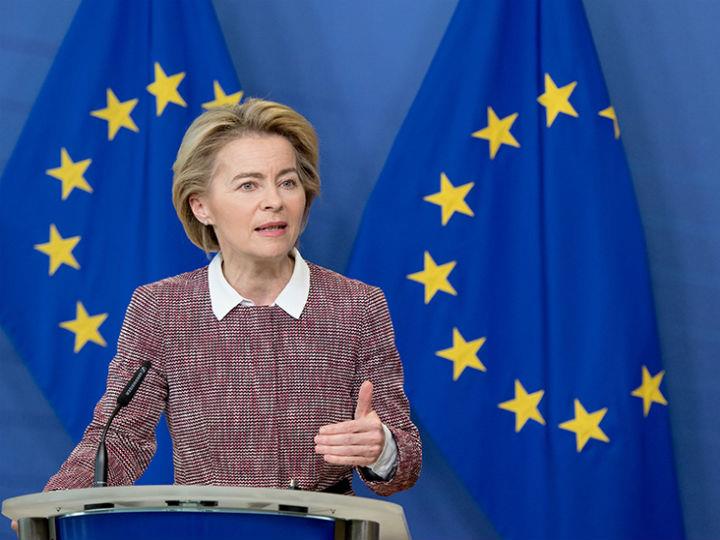by Andres Ortega*
From the President of the European Commission, Ursula von der Leyen, to the French President, Emmanuel Macron, the term “European sovereignty” has become the new watchword.
Europe: Mere bystander?
Now that sovereignty is given special emphasis by the likes of the governments of the United States, China, India and Russia, it turns out that the EU is ill-placed to deal with the crisis in international law and multilateralism that stems from this worshipping of emphasis.
This is not just due to the fact that the EU is diminished in the wake of Brexit.
Essentially built upon the rule of law and with a multilateralist bent, the reference in the EU to “strategic sovereignty” (essentially meant in a military context) as well as of “technological sovereignty” sounds good, but is essentially quite amorphous.
There are big questions about the viability of the EU in the era of IT dominating technological innovation as well as in an era dominated once again by geopolitics.
“European sovereignty” vs. U.S. insistence
An example of the lack of sovereignty is the nuclear deal with Iran. Ever since the Trump Administration withdrew, the EU has tried to salvage it. Ultimately, though, it has had to yield to the U.S. government.
One wonders whether something similar will end up happening with the U.S. veto on Huawei involvement in 5G technology.
The EU, despite what it spends – which is diminished because it spends little and what it spends, it spends badly – is in an uncomfortable situation vis-a-vis the United States.
Essentially, the EU is a military dependent of the United States and de facto a digital colony of big U.S. data companies (and increasingly Chinese ones).
Washington may not control Apple, Google or Amazon, although the Chinese Communist Party does wield control over Chinese corporations. But of the 10 largest corporations in the world, according to Forbes, none is European (the largest, the Volkswagen Group, comes in at number 18).
What is the EU’s goal?
If the EU does not just want to be in the business of mouthing big words, it must actually learn to speak the ‘language of power’ and of geopolitics. And for that to be real, this entails for the EU to acquire actual capabilities — and not only military.
One such capability would involve the inclusion of at least two European companies among the top 10. Ideally, this should happen before the current European Commission’s term is up.
However, the EU is instead in knots over whether or not merger guidelines could be loosened to reflect global markets realities and global competition.
The failed Lisbon strategy
Having ambitious, yet realistic goals is all the more necessary as the so-called Lisbon strategy, which the EU approved in 2000, claimed that the EU would become “the most competitive and dynamic knowledge-based economy in the world” within 10 years.
Twenty years later, the less ambitious goal is “to become a global leader in innovation in the data economy and its applications.” To which Americans would suitably add: Talk is cheap.
Macron is serious
Which is not to say that Emmanuel Macron — aware of all these shortcomings – is not serious about pursuing European sovereignty. To him, that means the “capability to act” independently, i.e., a certain freedom of action in Europe.
It also entails the freedom of not being swept up by the decisions of others –i.e., freedom from action. That has previously been the case with the invasion of Iraq in 2003.
And it could happen again with regard to policy on China. Or, alternatively, with regard to being subject to the foreign sanctions imposed by the U.S. government on third-party countries.
But this capability might better be referred to as “autonomy,” the term that was used before “sovereignty” came into vogue.
Some practical suggestions
If we really want to pursue the notion of European sovereignty, we must think more about Europeans from the twin perspective of European and national reality.
It is necessary to think about the reason for Europe, as well as about the European interest, in the same way one thinks about the reason for the state or the national interest.
But of course, this is not possible with the divisions that exist on so many issues between member states, or with the rules of unanimity, or when a seemingly eternal transition of power is taking place in Berlin, while the essential Franco-German axis has been paralyzed for an even longer time period.
External sovereignty
Externally, European sovereignty means taking back from the United States and China (but also the markets) the capability to act, in all respects.
It is all very well that the EU sees itself as a regulatory superpower (as Anu Bradford cogently argues in her recent book, The Brussels Effect).
The EU has indeed had relatively global successes in terms of imposing its standards, for example in the field of data protection (the GDPR), in road vehicle safety and soon in the tax on carbon and on digital commerce.
It now has the ambition to repeat this in Artificial Intelligence and data, among other areas.
All of that said, it is unlikely to maintain such sway unless it preserves or increases its actual capabilities, whether in markets or elsewhere. As Guntram Wolf has pointed out so aptly, “referees don’t win matches.”
Four conclusions
1. Before talking more about European sovereignty, it is necessary to learn to think about it, and equip it with the instruments and the capabilities that will make it possible.
2. For the Europeans, this is a case of taking their destiny into their own hands. That is something that cannot be awaited, but must rather be won.
3. What this requires at a minimum is to rethink European integration for purposes other than the original ones.
4. It is true that the EU was not founded on the idea of outward-facing sovereignty. But the world around it has changed substantially. That is why it must rise collectively to the real challenge.
Editor’s Note: Adapted from Andres Ortega’s Global Spectator column, which he writes for the Elcano Royal Institute.
*senior research fellow at the Elcano Royal Institute
**first published in: www.theglobalist.com




 By: N. Peter Kramer
By: N. Peter Kramer
